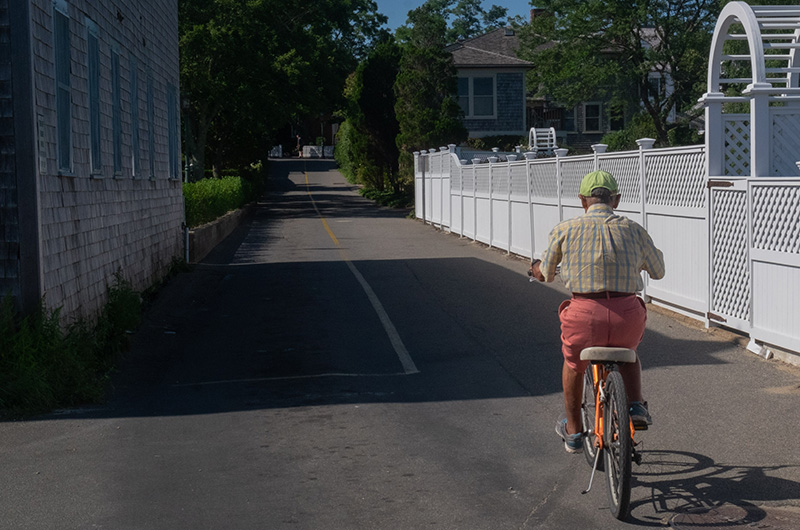Professor of medicine Siamak Adibi had been living in the United States for close to 30 years — and an American citizen for more than 15 — when he received an invitation he couldn’t refuse.
The ruler of Iran, Mohammed Reza Shah, wanted Dr. Adibi to return to his native country as its first Imperial Chief of Medicine. Long before, the shah had funded Dr. Adibi’s undergraduate and medical school education in the U.S. Now it was time to repay the debt by helping Mohammed Reza establish an international center of medicine in Tehran.
“(T)he basis of his dream was to revive the glories of the Pre-Islamic Persia,” Dr. Adibi recalls in his new book, Trump and the Iranian Islamists: The Threat to World Peace. “I promised the King that I would make every effort to help him to build such a towering medical center.”
But as Dr. Adibi and his family were preparing to move, Mohammed Reza was overthrown in the violent revolution of 1979. After thousands of years, the Persian Empire had fallen. There would be no international medical center. Riddled with cancer, the shah died in exile the following year. The Adibis remained in America, where they have summered on Chappaquiddick for more than half a century.
On Sunday Dr. Adibi and his wife Joan rode their bicycles to the Chappy Ferry for an author talk and signing at Edgartown Books. Along with the new book, a slim 39 pages in length, the book store will also have some copies of Dr. Adibi’s 2015 memoir My Life and the Overthrow of the Peacock Throne.
Regime change and resettlement is nothing new to the Adibi family, descendants of a medieval Persian satrap (provincial ruler) who governed part of what is now Armenia. When Russia conquered the Caucasus region in the 19th century, the clan relocated to Tehran.
Dr. Adibi’s father led the 1925 army coup d’état that unseated the Ghajar dynasty and installed Reza Shah on Iran’s Peacock Throne. That reign lasted only until World War II, when the Shah was forced by British and Russian powers to abdicate in favor of his son Mohammed Reza.
But the Islamist revolution of 1979 was something different. It toppled the Peacock Throne, ended the 2,500-year Persian Empire and criminalized any sign of Westernized lifestyles in Iran.
“There were a lot of Americans” there before the revolution, and luxury hotels for tourists, Dr. Adibi told the Gazette at the couple’s sun-filled Chappy home this week. “There was dancing and drinking and gambling. All of these have been killed.”
Nearly 40 years after the revolution began, Dr. Adibi still grows angry when he looks at the photos in his new book. One depicts Iranian Revolutionary Guards preparing to execute a row of blindfolded men in Western-style clothes. Another shows a massive 2016 demonstration at the tomb of Cyrus the Great, who founded the Persian Empire.
“It was a peaceful demonstration, but this bastard regime and the Ayatollah jailed them or shot them and stopped them. Still, no freedom,” Dr. Adibi said.
From Chappy and Pittsburgh, Pa., where he is retired from teaching medicine at the University of Pittsburgh, Dr. Adibi has watched the changing political relationship between his native land and his adopted nation with deepening concern.
The average Iranian citizen has no animosity for Americans, he insists. “If you go to Tehran, they all want to take you home for dinner. They’re very hospitable. They love America — they don’t understand the Islamists, why they hate America,” he said.
Loving each country deeply, “I discovered the importance of world peace in my life,” Dr. Adibi said. After a chance encounter with a Gazette reporter in 2006 led to a feature story headlined On His Bicycle, Siamak Adibi Ponders Peace, he realized he had an audience.
“I decided to become a world peace champion,” he said. His model is a French writer and Nobel laureate who died in 1924.
“Anatole France was very dear to me,” said Dr. Adibi, who discovered the author’s works when he was a teenaged “addict of reading books in the afternoon.”
France “was a man trying to find peace for the world. And he did his best, but ultimately the West did not go for world peace. So I decided to take it over,” he said with a smile.
Dr. Adibi’s letters and opinion essays have been published in the Pittsburgh Post-Gazette as well as on the Vineyard, and he spent “a whole year sitting at my desk and drafting” the new book.
In Trump and the Iranian Islamists, Dr. Adibi takes aim at the current president for killing the nuclear deal framework of 2015 and taking the U.S. “in a direction that promotes world unrest, not world peace.”
In person, Dr. Adibi is more blunt. “I hate him and the Islamists,” he said. “Donald Trump is the worst thing we have ever gotten in our world.”
If there is to be peace between nations, Dr. Adibi no longer believes that the U.S. will aid in the process. He’s now setting his sights on European leaders like French President Emmanuel Macron.
“(I)n the absence of any support from the Americans, it would be desirable if the Europeans would take over the revival of world peace,” he writes in the new book.
But he no longer believes the revival will come in his lifetime. “I have worked so hard,” Dr. Adibi said. “I spent so much time writing my thoughts about peace. I really have lost hope.”
Now in his mid-80s, with grandchildren in Pittsburgh, “I am just making myself happy,” he said. “I still go biking and go to the clubs for drinks and wine and so on.
“I’ve decided to have fun, because life is so short. I have done my best that I could achieve for the country.”





Comments (2)
Comments
Comment policy »